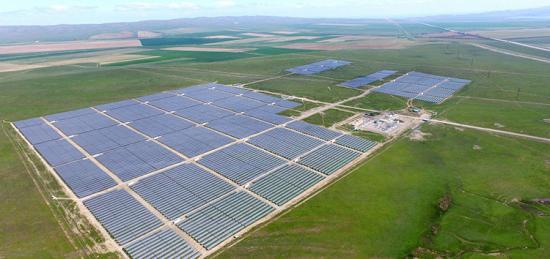The Power Of The Sun - European Bank For Reconstruction And Development
10th September 2021

Seven solar stories from the EBRD regions
The end of summer is nigh. Temperatures are falling and the days are getting shorter.
In the northern hemisphere, summer lasts until the autumnal equinox on 22 September. Many of the EBRD's regions, however, from the Balkans to Turkey and the southern and eastern Mediterranean (SEMED), have sunny weather all year round.
This means that they also have great potential to harness solar energy.
Solar is a primary source of renewable energy, popular around the world. It is typically low cost and easy to install and use. "The cost of manufacturing solar panels has plummeted dramatically in the last decade, making them not only affordable but often the cheapest form of electricity," according to the International Renewable Energy Agency (IRENA).
There are many environmental advantages of renewable energy, such as lower carbon emissions and reduced air pollution, as well as numerous socioeconomic benefits, such as job creation. As of 2019, around 11.5 million people worldwide worked in the renewable energy sector, according to IRENA, with more than a third of them working in photovoltaics.
The EBRD, its partners and donors have been investing in solar energy for almost three decades. Our projects can often come in unlikely shapes and forms - and there are countless examples, from solar-powered park benches to solar-powered chewing-gum production and local gym heating.
According to the World Bank, "around 70 countries boast excellent conditions for solar PV, where average daily output exceeds 4.5 kilowatt hours per installed kilowatt of capacity (kWh/kWp) - enough to boil around 25 liters of water. Countries in the Middle East, North Africa, and Sub-Saharan Africa regions dominate this category."
The World Bank further finds that high-solar-potential countries tend to have low seasonality in solar photovoltaic output, meaning that the resource is relatively constant from month to month throughout the year. Even in regions such as Central Asia (temperatures in Kazakhstan can fall as low as -45°C, for example), solar energy is widely used.
In Kazakhstan, for instance, the EBRD and the local authorities have agreed to develop a long-term cooperation strategy to achieve carbon neutrality in the country's power sector by 2060. The accord will further cement Kazakhstan's status as a renewable energy leader in Central Asia.
Moreover, a long-term engagement strategy backed by targeted concessional financing from the EBRD and the Climate Investment Funds (CIF) has been instrumental in jump-starting Kazakhstan's renewables market. Since 2010, grant funds from the CIF's Clean Technology Fund (CTF) have helped strengthen Kazakhstan's enabling environment and facilitated capacity and investment growth in the renewables sector. The EBRD-CIF partnership has enabled the sector to attract billions of dollars in clean energy investment to the country since 2013.
Read the full report HERE
The EBRD is owned by 69 countries, as well as the European Union and the European Investment Bank. Each shareholder is represented on the Board of Governors, which has overall authority over the Bank. The UK is major shareholder in the bank.
www.ebrd.com
